Recent Blog Posts
Can You File Bankruptcy More Than Once? | MD Bankruptcy Lawyer
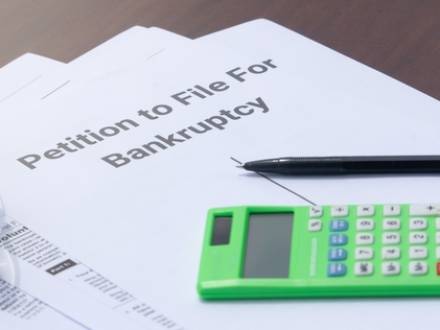 It is possible to file for bankruptcy more than once in Maryland, but strict waiting periods and eligibility rules apply. Understanding these limits is important before deciding on your next step.
It is possible to file for bankruptcy more than once in Maryland, but strict waiting periods and eligibility rules apply. Understanding these limits is important before deciding on your next step.
Bankruptcy remains a common tool for people facing financial hardship. According to the Administrative Office of the U.S. Courts, total bankruptcy filings increased by 13.1 percent in the span of one year. If you are considering filing again in 2026, a Montgomery County, MD bankruptcy lawyer can help you understand whether you qualify and what strategy may protect your future.
Can You Legally File Bankruptcy More Than Once in Maryland?
Federal law allows people to file for bankruptcy more than once. Life circumstances change, and financial setbacks can happen even after a prior discharge. However, you cannot file repeatedly without limits. The law sets specific waiting periods between cases depending on the chapter you previously filed and the one you want to file next.
Can Bankruptcy Remove a Property Tax Lien?
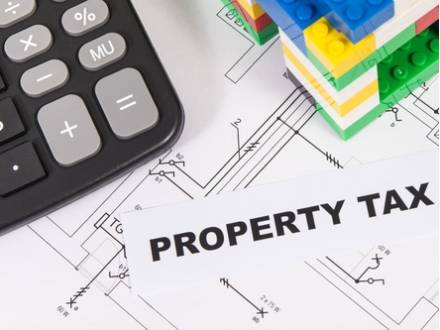 In most cases, bankruptcy does not completely remove a property tax lien, even though it can help manage how the debt is handled. Property tax liens are treated differently from credit cards or medical bills because they are tied directly to real estate.
In most cases, bankruptcy does not completely remove a property tax lien, even though it can help manage how the debt is handled. Property tax liens are treated differently from credit cards or medical bills because they are tied directly to real estate.
In 2025, data showed that Maryland’s average effective property tax rate was about 1.02 percent of a home’s assessed value, which is higher than the national average and can make falling behind on property taxes a real risk for homeowners.
As of 2026, bankruptcy courts continue to follow strict federal rules when it comes to tax debts and liens. If you are struggling with unpaid property taxes, a Charles County, MD bankruptcy lawyer can help you understand whether bankruptcy may protect your home.
Can Bankruptcy Stop Wage Garnishment or Bank Levies?
 Filing for bankruptcy can stop wage garnishment and bank levies in most cases, often immediately. Bankruptcy triggers a legal protection called the automatic stay, which requires creditors to pause collection actions while your case is pending.
Filing for bankruptcy can stop wage garnishment and bank levies in most cases, often immediately. Bankruptcy triggers a legal protection called the automatic stay, which requires creditors to pause collection actions while your case is pending.
In 2025, federal court statistics showed that consumer bankruptcy filings increased nationwide as more households struggled with rising costs and aggressive debt collection. Many of those families were likely dealing with wage garnishment and account levies.
If your paycheck is being reduced or your bank account has been frozen, a Washington D.C. bankruptcy lawyer at Bloc One Services, LLC can help you understand how bankruptcy may provide fast relief and a path forward.
What Should I Do if I'm Being Sued by a Debt Collector in Maryland?
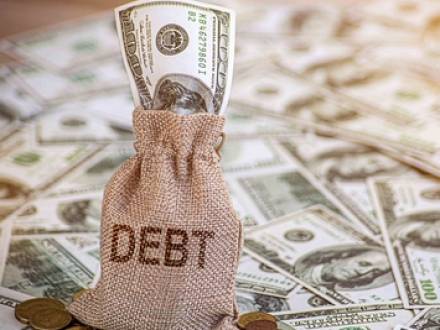 When you are sued by a debt collector, court papers typically arrive without much explanation. The language is formal, deadlines are short, and the consequences can seem serious from the start. You might be worried about wage garnishment, frozen bank accounts, or added fees before you even understand what the lawsuit means.
When you are sued by a debt collector, court papers typically arrive without much explanation. The language is formal, deadlines are short, and the consequences can seem serious from the start. You might be worried about wage garnishment, frozen bank accounts, or added fees before you even understand what the lawsuit means.
As of 2025, Maryland debt collection cases continue to follow strict procedural rules, which makes it important to take the right steps early. If you have been served with a debt collection lawsuit, speaking with a Montgomery County, MD debt settlement lawyer can help you understand your options and decide how to respond.
What Does It Mean When a Debt Collector Files a Lawsuit Against You in Maryland?
When a debt collector files a lawsuit, they are asking the court to order you to pay an alleged debt. The complaint usually lists an amount owed and may include interest, fees, or court costs.
Stopping a Maryland Foreclosure: Chapter 7 or Chapter 13?
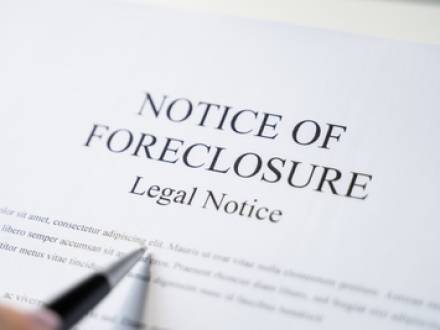 If you are a Maryland homeowner facing foreclosure, you may feel like the process is moving too fast for you to react. If you are considering filing for bankruptcy, both Chapter 7 and Chapter 13 bankruptcy offer powerful protections that can stop foreclosure procedures through the automatic stay. Bankruptcy can function as a legal "pause" button on foreclosure in both cases.
If you are a Maryland homeowner facing foreclosure, you may feel like the process is moving too fast for you to react. If you are considering filing for bankruptcy, both Chapter 7 and Chapter 13 bankruptcy offer powerful protections that can stop foreclosure procedures through the automatic stay. Bankruptcy can function as a legal "pause" button on foreclosure in both cases.
However, while both types of bankruptcy have this in common, one merely delays foreclosure, while the other can provide a long-term path to staying in your home. Understanding the distinction is essential to determining whether you can realistically keep your home. An experienced Charles County, MD consumer bankruptcy attorney can help you explore your options and make the best choice for a fresh financial start.
How Does the Foreclosure Process Work in Maryland?
Maryland’s non-judicial foreclosure system allows lenders to move quickly once a Notice of Intent to Foreclose and Order to Docket are filed. Homeowners may quickly face auction scheduling, escalating arrears and fees, and loss mitigation denials. Because the process goes so quickly, filing for bankruptcy can offer immediate relief and give you a bit of breathing room.
Why Early-Year Chapter 7 Filings Risk Losing Tax Refunds
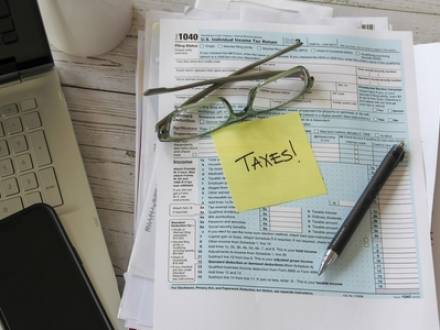 Tax season is one of the busiest times for bankruptcy attorneys, but for some Maryland debtors, filing a Chapter 7 bankruptcy too early in the year can result in a costly surprise. Since Maryland’s wildcard exemption has a strict dollar cap, a large tax refund may exceed what you can legally protect, resulting in the loss of your tax return to the bankruptcy trustee.
Tax season is one of the busiest times for bankruptcy attorneys, but for some Maryland debtors, filing a Chapter 7 bankruptcy too early in the year can result in a costly surprise. Since Maryland’s wildcard exemption has a strict dollar cap, a large tax refund may exceed what you can legally protect, resulting in the loss of your tax return to the bankruptcy trustee.
Because of this, filing bankruptcy between January and March when you are expecting a sizeable refund can be risky – especially if you have earned-income credits, child tax credits, or multiple W-2 withholdings. It is extremely important that you fully understand how the wildcard works in Chapter 7 bankruptcy and how timing can potentially protect your refund. Your best course of action is to speak to an experienced Montgomery County Chapter 7 bankruptcy attorney to determine the best time to file.
Medical Debt Relief in Maryland Chapter 7: New Protections
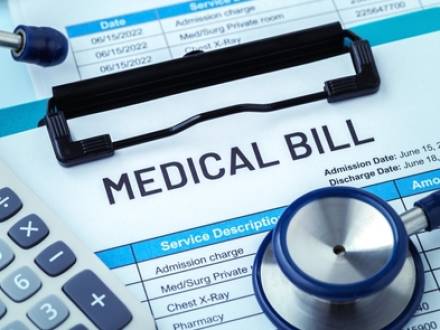 As of 2024, 100 million Americans owed $220 billion in medical debt. This level of debt can have devastating impacts on the lives of these consumers, leaving them unable to borrow money for a home or car, and even being rejected for jobs they are otherwise qualified for due to poor credit reports. As many as 66.5 percent of all Americans who file for bankruptcy (550,000 per year) say that medical bills are the primary cause.
As of 2024, 100 million Americans owed $220 billion in medical debt. This level of debt can have devastating impacts on the lives of these consumers, leaving them unable to borrow money for a home or car, and even being rejected for jobs they are otherwise qualified for due to poor credit reports. As many as 66.5 percent of all Americans who file for bankruptcy (550,000 per year) say that medical bills are the primary cause.
Maryland lawmakers are finally beginning to acknowledge the extent of the burden of medical debt. In 2024, the state’s new Hospital Patient Financial Protections law (Health-Gen Section 19-214.3) began restricting how hospitals and affiliated collectors can pursue unpaid medical bills. Maryland residents considering Chapter 7 bankruptcy should be aware that this law changes more than just billing practices.
When Debt Collectors Violate the Bankruptcy Stay in Maryland
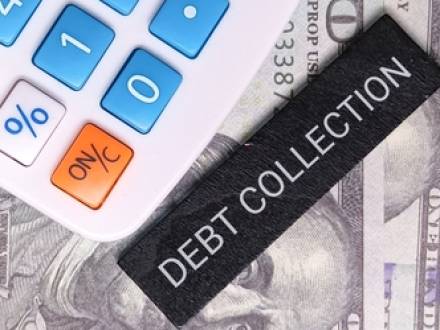 The automatic stay is one of the strongest shields in bankruptcy, as an immediate court order that halts all collection efforts. Unfortunately, in Maryland and across the nation, some creditors and debt collectors push these legal limits, sending demand letters, garnishing wages, and making harassing phone calls after bankruptcy has been filed and the automatic stay has been issued.
The automatic stay is one of the strongest shields in bankruptcy, as an immediate court order that halts all collection efforts. Unfortunately, in Maryland and across the nation, some creditors and debt collectors push these legal limits, sending demand letters, garnishing wages, and making harassing phone calls after bankruptcy has been filed and the automatic stay has been issued.
Under federal law (11 U.S.C. Section 362(k)), debtors can recover damages for willful violations of the automatic stay. The state of Maryland goes a step further under the Maryland Consumer Debt Collection Act and the Maryland Consumer Protection Act, which provide additional remedies when a debt collector crosses the line.
Maryland Chapter 13 Bankruptcy and Gig Economy Workers
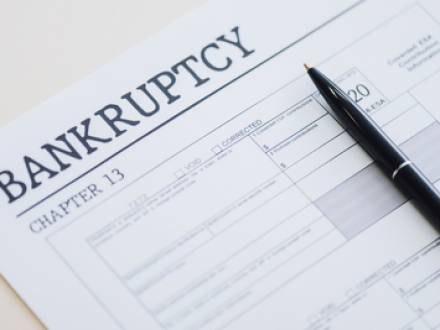 While the U.S. statistics regarding freelance or gig workers vary, it is estimated that in 2024, between 57 and 70 million people in the U.S. were engaged in freelance work – a staggering 36 to 40 percent of the adult workforce. This trend is expected to grow, with some sources predicting as many as 87 million freelancers by 2027. While some freelancers are moonlighting from their "primary" job as a means of increasing their income, for a significant portion of gig workers, this is their only source of income.
While the U.S. statistics regarding freelance or gig workers vary, it is estimated that in 2024, between 57 and 70 million people in the U.S. were engaged in freelance work – a staggering 36 to 40 percent of the adult workforce. This trend is expected to grow, with some sources predicting as many as 87 million freelancers by 2027. While some freelancers are moonlighting from their "primary" job as a means of increasing their income, for a significant portion of gig workers, this is their only source of income.
The unusual income patterns of freelancers can make it challenging to propose a feasible Chapter 13 bankruptcy repayment plan. Bankruptcy courts generally lag behind in assessing "regular income" for plan feasibility. If you are struggling with debt as a Maryland freelancer, you can learn how bankruptcy might affect you by speaking with an experienced Charles County, MD consumer bankruptcy lawyer.
Can Chapter 7 Bankruptcy Halt Wage Garnishment in Maryland?
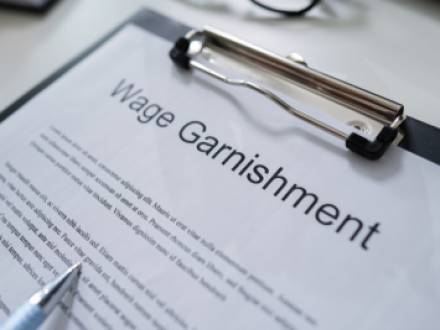 In Maryland, wages can be garnished due to unpaid child support, past-due taxes, or defaulted student loans. While your wages could also be garnished for credit card debt, medical debt, or personal loans, the creditor must first obtain a court-ordered judgment, so this is not as common.
In Maryland, wages can be garnished due to unpaid child support, past-due taxes, or defaulted student loans. While your wages could also be garnished for credit card debt, medical debt, or personal loans, the creditor must first obtain a court-ordered judgment, so this is not as common.
The state of Maryland limits the amount that can be garnished to the lesser of 25 percent of your disposable wages or the amount exceeding 30 times the federal minimum wage. While that may not sound like much, in today’s economy, any amount taken from your check can make your financial situation even more precarious.
If you are thinking about filing for Chapter 7 bankruptcy, you may wonder whether wage garnishment will continue. Whatever your situation, filing for bankruptcy halts most wage garnishments through the automatic stay, allowing you to receive at least temporary relief.
Although the automatic stay legally requires creditors to cease most collection activities – including wage garnishment – you may still need to notify your employer’s payroll department. An experienced Prince George’s County, MD Chapter 7 bankruptcy attorney can help you determine whether your wage garnishment will halt when you file for bankruptcy.




